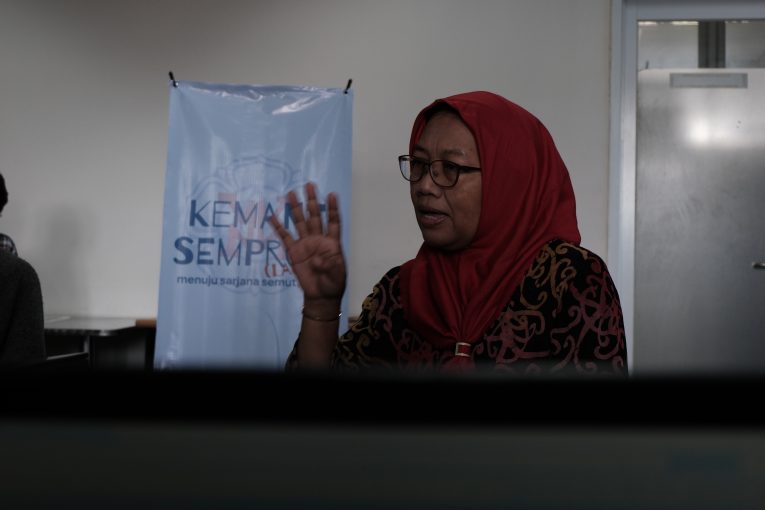
On Monday, March 4, 2024 a Thesis Proposal Seminar or Sempro was held offline for S-1 Cultural Anthropology students of FIB UGM. The Proposal Seminar was held openly, so that the academic community and the general public could see the seminar. This seminar was attended by 29 students who were divided into four clusters, namely the economic tourism cluster, lifestyle and health cluster, ecology and maritime cluster, and arts, gender, and labor cluster.
Dr. Atik Triratnawati, M.A as the Head of the S-1 Cultural Anthropology Study Program who was also present as a discussant lecturer in the proposal seminar this time delivered several comments, he conveyed a message related to the need for students to refer to SDG’s values in writing a thesis. He revealed that actually Gadjah Mada University has made a regulation where the final project, thesis, and thesis of students are required to refer to the values in the SDGs and all courses in the S-1 Cultural Anthropology Study Program have also referred to the values in the SDGs. However, from the seminars that have been held, almost none of them refer to or clearly link the thesis proposals that students present with the values in the SDGs. Responding to this phenomenon, he planned that in the future there will be a socialization related to embedding SDGs values in the thesis and thesis of Anthropology students.
In addition to mentioning about SDGs, Dr. Atik Triratnawati, M.A also responded to the seminar from a technical point of view, she advised related to the question sentence in the problem formulation. She revealed that there are still many students who underestimate the question sentence “why” and feel enough with the question sentence how, even though according to her if the why sentence is used in the right context, it will lead to broader and deeper research findings. He advised students who will take part in proposal seminars in the future to consider the aspect of the question sentence “why”.
From the proposal seminar that has been held, it can be seen that although the University has emphasized the importance of referring to SDGs values in the thesis, there are still gaps in its application by students. Support and socialization planning that will be initiated in the future are important steps to ensure that students can better understand and apply these principles in their thesis. In addition, messages related to the importance of asking “why” questions are also important points in improving the quality of research. All of this is an effort to encourage the achievement of the ideals contained in the SDGs, especially point 4 (Quality Education) through the contribution of Cultural Anthropology students at Faculty of Cultural Sciences UGM.

